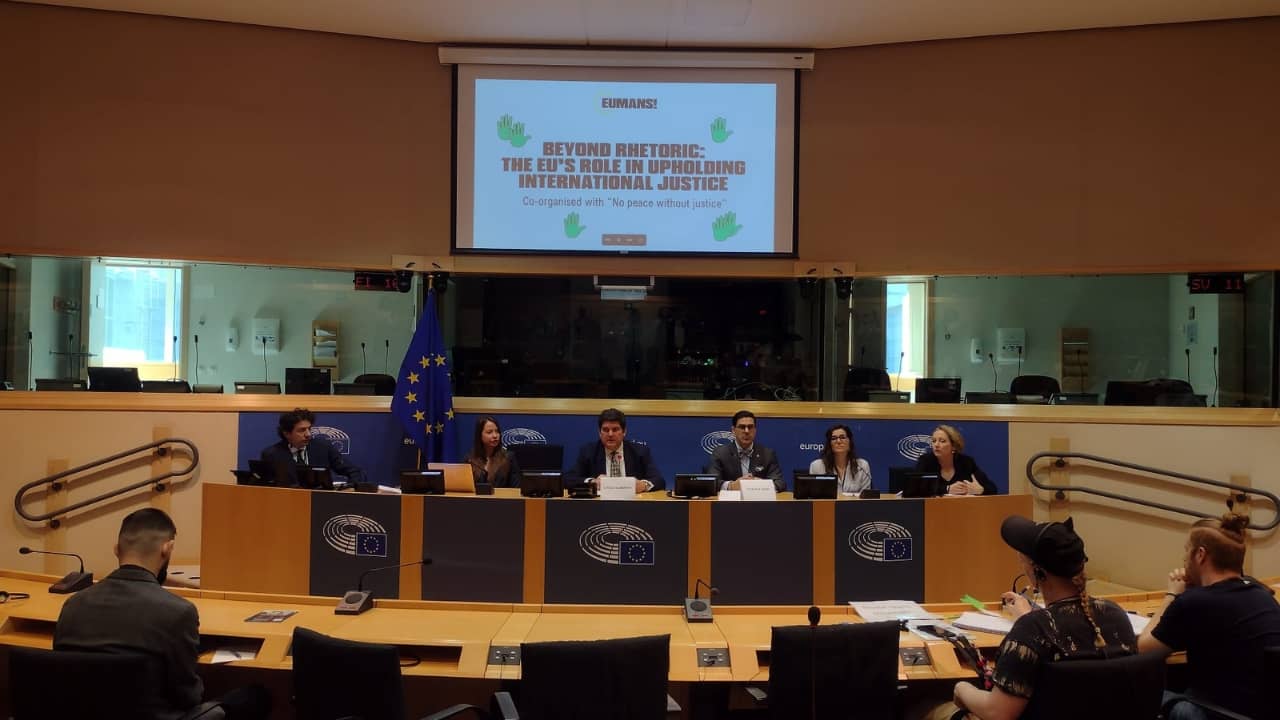On 5 February 2002, Minister of State and Foreign Affairs, Mr. Jaime Gama, deposited Portugal’s instrument of ratification at UN Headquarters, making Portugal the 51st country to ratify the Rome Statute for the International Criminal Court (ICC). Portugal thus becomes the first Portuguese-speaking country to join the ICC Statute, encouraging other Lusophone countries, such as Angola, Brazil, Cape Verde, Guinea Bissau, Mozambique and Sao Tomè et Principe, to follow Portugal’s example and ratify as soon as possible.
Portugal’s ratification was approved by the Parliament on 20 December 2001, shortly after the resignation of Prime Minister Antonio Guterres but before parliamentary activities were actually suspended. “The vote came just in time to avoid Portugal’s late participation in the creation of this first permanent mechanism of international criminal justice,” said Parliamentarians for Global Action (PGA) member Mr. Jose Magalhaes, Secretary of State for Parliamentary Affairs. Magalhaes acted as the link between the Government and the Parliament and played a crucial role in generating public and parliamentary support for the ICC process in Portugal, where a challenging constitutional revision was required.
The Portuguese Constitution was revised through a bipartisan agreement between the major political coalitions, dealing successfully with the issue of life-imprisonment, which is prohibited under the Constitution but allowed under the ICC Statute. The agreement decreed that according to the ICC’s principle of complementarity, Portugal will retain primary jurisdiction to prosecute and sentence alleged perpetrators of international crimes, in which case life imprisonment will not be imposed. The ICC will have the authority to prosecute only when a State is unwilling or unable to do so effectively.
Portugal’s bipartisan agreement was initially formulated in the National Assembly at PGA’s “Conference on ICC Ratification for Lusophone Countries,” held in February 2001 in Lisbon. Supported by the European Commission and the Canadian Government, the Lisbon Conference provided the first occasion for similar mutual understandings in other Portuguese speaking countries. For instance, at the Conference, Brazilian parliamentarians from majority and opposition developed a new strategy towards ICC ratification by their country, which contributed to President Fernando Henrique Cardoso’s decision to recommend the ratification to the Parliament without waiting for the completion of the related Constitutional amendment processes. Coalition Members Human Rights Watch and Amnesty International were on mission to Brasilia in February to gather support among key decision-makers for the ratification bill, which shall shortly be followed by legislation to implement the Rome Statute in the national legal order. PGA International Council member Dep. Antonio Carlos Pannunzio has confirmed on numerous occasions his commitment to see Brazil among the first 60 States Parties.
Efforts throughout the world continue to support the entry into force of the ICC Statute and ensure that the other 5 Lusophone countries join the Statute and take part in the creation of the new Court. Angola, that could have been the first Lusophone State to ratify if the Presidency of the Republic had not decided that Parliamentary ratification could not be accepted without a previous Constitutional amendment, has seen the creation of a Coalition for the ICC under the auspices of the Angolan Bar Association and Human Rights Commission. In Guinea Bissau, PGA member Hon. Ibrahima Salla has launched a parliamentary initiative from the benches of the opposition to support the pro-ICC ratification position taken by the Speaker, Hon. Jorge Malu at the PGA Lusophone Conference. Additionally, East Timorese authorities have already stated that, once their country is fully recognized as a State, it too will ratify the ICC Statute.




